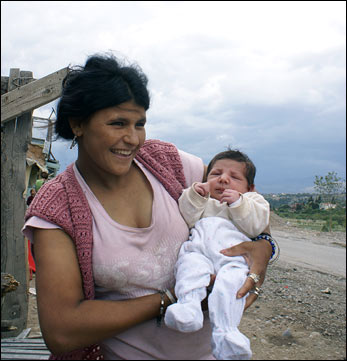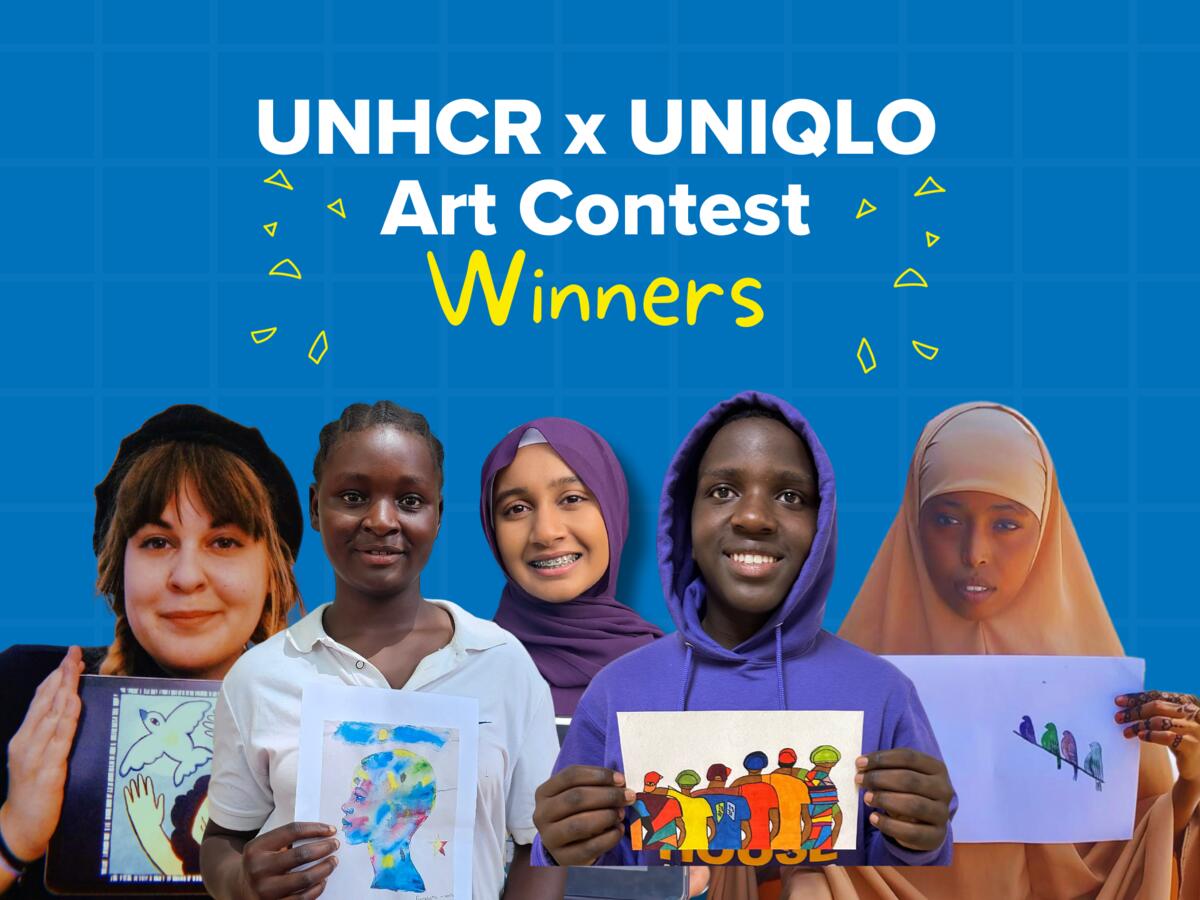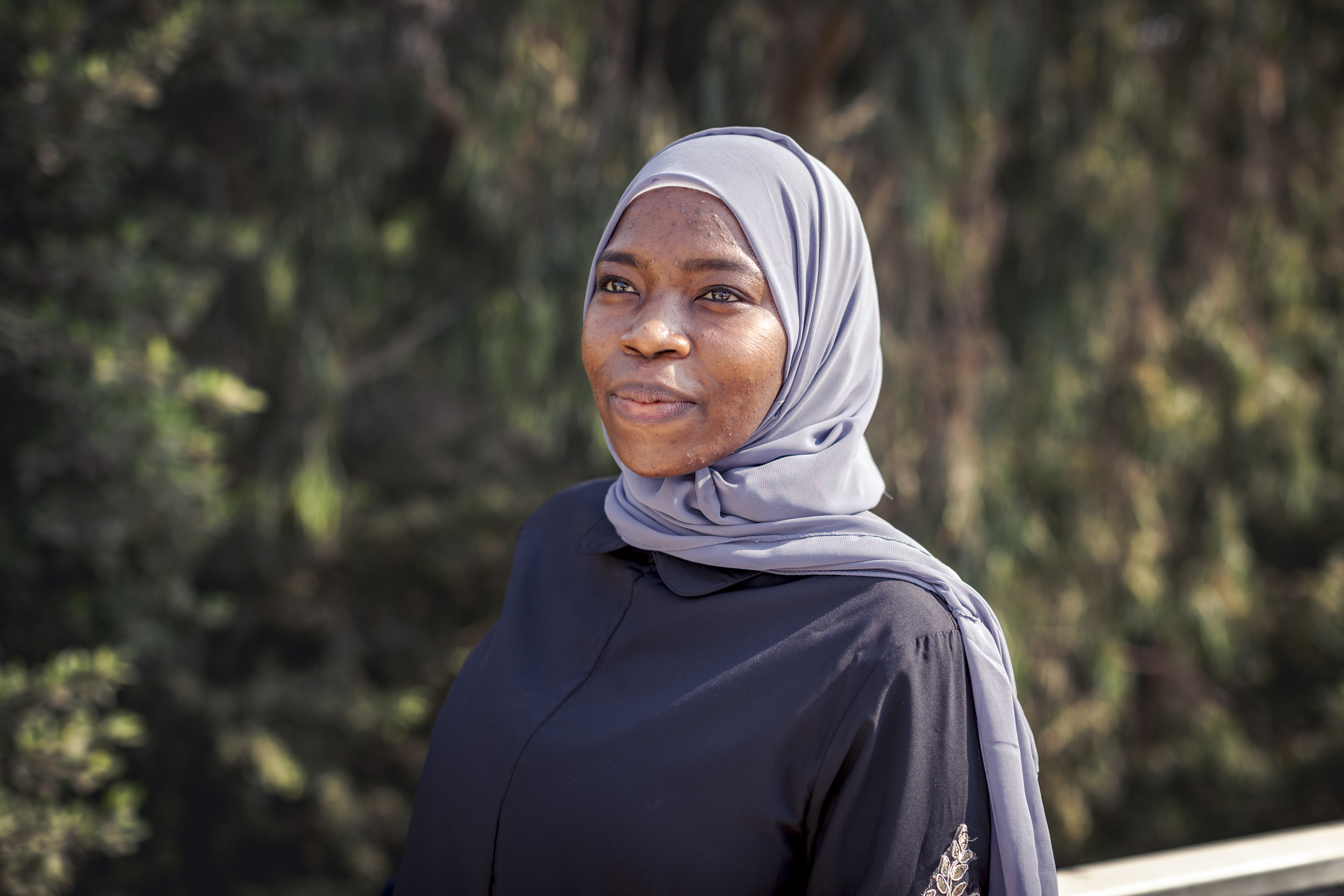Students face up to refugee realities in Montenegro
Students face up to refugee realities in Montenegro

PODGORICA, Montenegro, October 29 (UNHCR) - When a group of visual arts students in Montenegro met refugees for the first time, it left a deep imprint in their minds.
"It's distressing to witness the conditions they're living in," said one student. "I can't believe these people have no personal documents. That is so horrible," said another.
They were part of a group of 28 students from the Faculty of Visual Arts at Podgorica's Mediterranean University who spent the past month visiting Roma, Ashkalia and Egyptian camps and refugees and displaced people in informal collective centres and in private accommodation.
They met people participating in income-generating projects, and those who built their own homes through UNHCR's self-help construction programme. They also spoke to UNHCR staff and victims of domestic violence as well as children and the elderly in need of medical help.
What resulted was a photo exhibition that opened last week in the Montenegrin capital, Podgorica. Zeljko Sofranac, the director of the Montenegrin Bureau for Care for Refugees, launched the event with UNHCR Representative Serge Ducasse.
"UNHCR is marking its 15th anniversary in Montenegro this year," said Ducasse. "It's a time to look back on achievements, but also an opportunity to look ahead. That's why we signed an agreement with the [Visual Arts] Faculty to educate future media professionals on the needs of refugees and displaced people. The photo exhibition is the first result of this collaboration."
Titled "15 years after, where are these people?," the exhibition features more than 100 stark portraits of life in exile - a woman's tattered refugee card, a child's feet in mismatched slippers.
It also shows hope, as a boy grins unabashedly and a mother beams at her baby outside their ramshackle hut. The photos seek to debunk the myth that refugees are a burden and to focus on their contributions to their host society both economically and culturally.
"Fifteen years may not seem much in an ordinary life," said Ducasse. "But for refugees and displaced people who were chased out of their villages and separated from their families by conflict or persecution, 15 years of daily struggle to restart their lives requires unimaginable courage."
All this was new to the students in the project, most of whom pay 2,500 euros (US$3,600) per semester of tuition at the private Mediterranean University. They had no idea that beyond their privileged lives, there were refugees struggling to survive.
"This is a rare opportunity for students to practise documentary photography and to have access to a variety of situations within one category of society," said their photography professor, Maja Djuric-Djordjevic. "These visits [to refugee camps and facilities] were part of the mandatory curriculum, and students will continue working with UNHCR to turn the photos into a calendar for 2008."

Montenegro hosts some 24,000 refugees and displaced people from Croatia, Kosovo and Bosnia & Herzegovina who fled conflict in the Balkans in the 1990s. For them, and especially for their children who feel at home in Montenegro, obtaining proper status and documents is the first step towards attaining their basic rights and self-sufficiency.
Since 1992, UNHCR has been helping the authorities in Montenegro to provide assistance after massive refugee influxes. The agency is seeking durable solutions for the remaining refugees and displaced people in the country. It is also helping the government to develop a national asylum system and to prevent and reduce statelessness.
By Gordana Popovic in Podgorica, Montenegro








